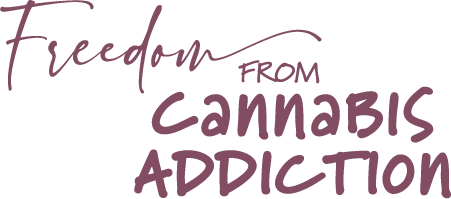Share Your Story for:
Freedom from Cannabis: Recovering from Cannabis Addiction©
We are currently seeking your personal and anonymous stories for a forthcoming (addiction studies) book about cannabis addiction.
(The deadline to submit a story for the second draft of stories to be considered for publication is Jan 15, 2026)
This cutting edge new anthology will give voice to a variety of cannabis recovery stories: while presenting a psychological and educational perspective specific to cannabis addiction.
Addiction is often described as a psychological, biological, and social disease. The intention of this book is to depict how chronic cannabis dependence and addiction affects the personal and professional lives of a variety of people. Polysubstance chemical dependency and alcoholism is a well-researched and documented field. However, cannabis addiction and recovery from cannabis addiction is rarely discussed in professional addiction studies or even with in psychology and mental health fields.
This book will present a diverse range of addiction and recovery stories by the underrepresented and misunderstood populations of people whose primary drug of choice has been cannabis. People stories will depict how cannabis has affected their lives and how they are now living in recovery, free of active addiction to cannabis.
Participants are asked to detail the specific adverse consequences of their cannabis addiction, including its psychological, physical, social and spiritual implications. People are encouraged to share how recreational and chronic cannabis use eventually led to a chemical dependency or full-blown addiction. They are welcome to personally describe how they decided to get clean from cannabis and what treatment methods they used and are currently using. Participants are also encouraged to share which treatment modalities have been most effective and which have been least effective. Some people with cannabis addiction have other issues or a co-diagnosis such as ADHD, PTSD, anxiety, depression and/or another mental health challenge. Others have mental and physical health consequences as a direct result of their cannabis use. Some included but not limited to increased Anxiety and Depression, Cannabinoid Hyperemesis Syndrome (CHS) and Cannabis Induced Psychosis (CIP).
People who participate are also invited to share how their recovery has enriched and transformed their personal and professional lives.
The working title of this book is:
Freedom from Cannabis: Recovering from Cannabis Addiction©
Stories are edited by Antonia Teresa Amore-Broccoli, LCSW
In this book, Amore-Broccoli presents a clear definition of the social model of addiction: the biological, psychological, and social aspects of addiction: including learned behavior and the neuroscience of addiction. She will discuss multiple treatment modalities for cannabis addiction.
People with cannabis addiction generally (not always) have complex and variable risks which predispose them to addiction.
Amore-Broccoli will also explore the social and environmental aspects that affect vulnerable populations specific to socialization of women; as well as the experiences of non white and LGBTQ2SI+ people. Predispositions for addiction are further complex due to social conditions such as sexism, misogyny, racism, racial trauma, ethnic trauma, anti-semitism, ableism, lesbian-phobia, homophobia, bi-phobia, gender identity, and transphobia.
Many of these listed (not limited to) issues affect a variety of peoples recovery: as well as access to treatment modalities that are not culturally and racially sensitive. All of this inevitably affects different people ability to maintain long term recovery from cannabis abstinence.
It is common for people who seek cannabis recovery to discover that they have been medicating themselves with cannabis for a variety of the reasons listed above. The cannabis use and addiction is often a symptom of underlying issues which people are asked to explore. These issues may contribute to higher levels of depression, low self esteem, low self worth, anxiety, post-traumatic stress disorder, racial trauma, ethnic trauma, learning differences, medical issues, or disabilities they may have.
The disparities between non white, disabled, women and LGBTQ2SI+ people can cause people to feel like an outcast by society, their own families, and sometimes their own recovery communities.
Some women, (1 out of 3) including non white and LGBTQ2SI+ people may very well have a complex history of trauma. Some have survived childhood abuse, sexual abuse, or domestic violence. Some are adult children of alcoholic or chemically dependent parents. Some have been married to partners who are chemically dependent. The racial, cultural, and ethnic disparities in people and women's lives who are non white and/or LGBTQ2SI+ in recovery will be explored through anonymous personal stories.
Amore-Broccoli will present a range of cannabis use and abuse conditions described as disorders in the DSM V. She will also document the most recent studies on medical addiction regarding the short-term and long-term effects of cannabis use disorder. We will discuss the different stages of addiction. Freedom from Cannabis Addiction presents stories from people in all stages of recovery which will demystify the general misconception that cannabis is neither harmful nor truly addictive.
Chapters on Detox and (Post Acute Withdrawal Syndrome (PAWS) specific to Cannabis Addiction will be explained. Additionally, relapse will be reframed and reconsidered. As Amore-Broccoli describes relapse as an aspect of recovery which is often stigmatized, feared, and devalued. Cannabis is a difficult substance to abstain from for long periods of a time for a variable of complex reasons; which the book will explore. Nevertheless relapse experience is just as significant in one’s overall journey to recovery as is the experience of the smaller percentage of people who remain clean from cannabis for consecutive years without a physical relapse. The hierarchy of sobriety and induced shame and humiliation of relapse can be debilitating for people; forcing them deeper into active addiction. In this study, the role of relapse in cannabis addiction will be explored and reconsidered in addition to a presentation of relapse prevention models.
People in recovery from cannabis addiction are encouraged to contact the author using the contact information below. A brief phone consultation is suggested (although not required) to identify whether this project is a good match for you. Antonia also offers interviews to help answer any questions and explain expectations for each participant. (The deadline for the second draft of stories is May 1, 2024.)
Amore-Broccoli, LCSW developed over 75 detailed clinical questions which will be a forthcoming Cannabis Recovery workbook. These questions can also be used as a format to write a personal recovery story. Though not required, the outline of addiction in different stages is a suggested guide to write a recovery story. However, creative writing in all forms is welcome.
Our intent is to generate a collection of real-life anonymous stories of people from as many races, ethnicities, cultures, classes, gender identities, and sexual preferences as possible. So, please feel free to spread the word.
We look forward to your participation.
For further information, please contact us at: womenembracerecovery@gmail.com
www.freedomfromcannabisaddiction.com
or by calling (831) 566-4409
Author: Antonia Teresa Amore-Broccoli, MSW, LCSW
Antonia has been a Licensed Clinical Social Worker for 30 years and an Addiction Specialist for 34 years. She is a Medical Social Worker in family medicine for Kaiser Permanente, Santa Cruz and maintains a small private practice as a psychotherapist. Antonia has been in personal recovery from cannabis addiction for 39 years.
Amore-Broccoli's intent for this book is to give voice to an addiction that is misunderstood, underrated and underrepresented by giving voice to firsthand anonymous stories while presenting a psychological and educational addiction studies perspective specific to the cannabis addiction.
Confidentiality Recommendation and Disclaimer: The identities of all contributors to this clinical study as well as all the personal stories of our contributors will remain confidential with Amore-Broccoli and her editor, Giovanna Capone. We respect the privacy of every participant. Upon publication, our writers can choose to either use their full name, choose a different name, use a pseudonym, or simply use their first name only.

